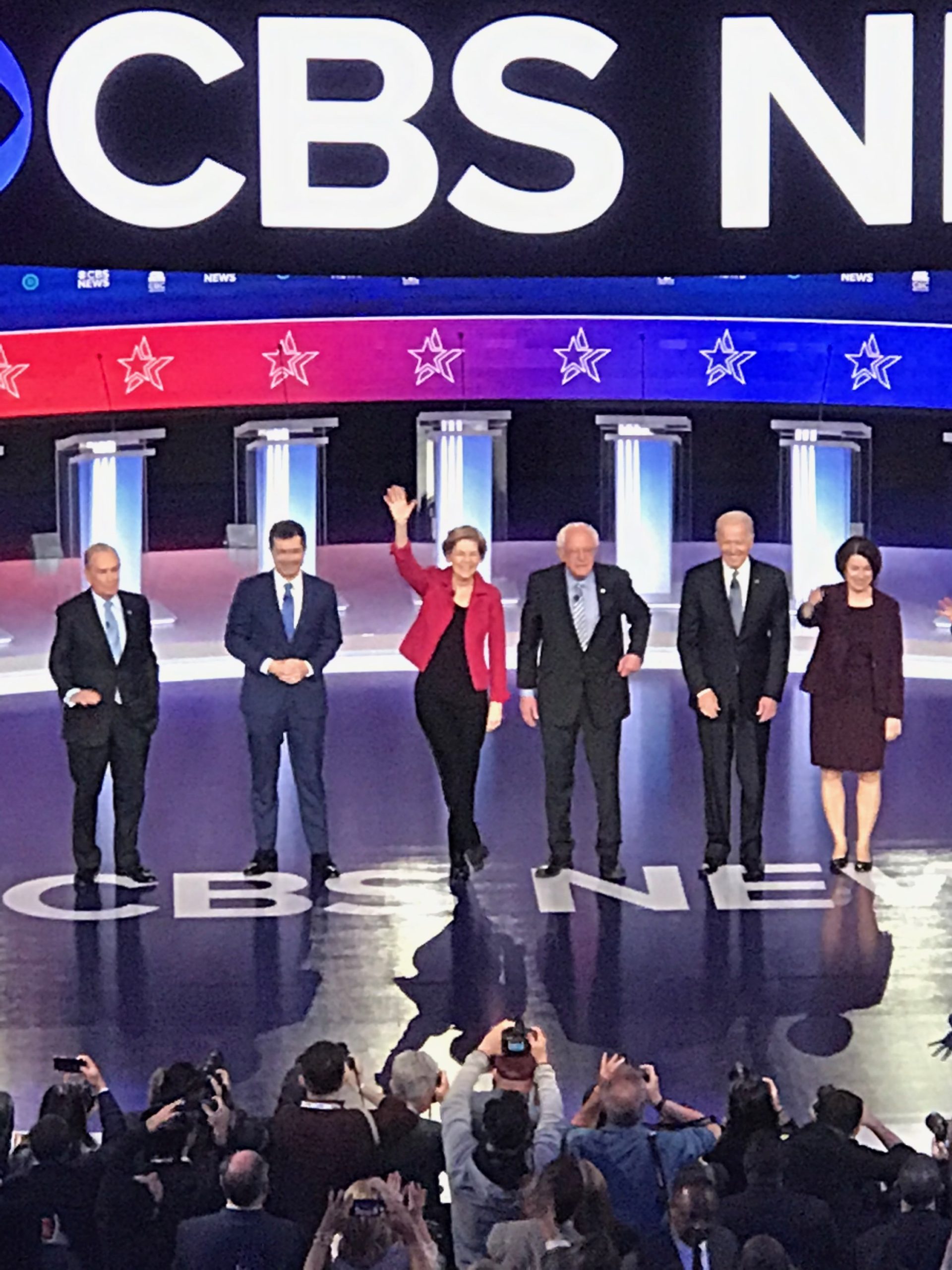Featured
Three Debate Takeaways for Black Voters

South Carolina holds a unique place among the early state primaries and caucus events. Unlike Iowa, New Hampshire and Nevada, the majority of the electorate is Black.
At this critical point in the presidential race for the Democratic nomination, Black voters are the deciders. The Palmetto state can cement Vermont Senator Bernie Sanders status as the frontrunner going into the biggest primary day on March 3rd. Alternatively, residents can give the leader in the polls, former Vice President Joe Biden, a clear and decisive victory. Another surprise candidate like billionaire businessman Tom Steyer could make a surprisingly strong showing, all but dashing Biden’s chances on Super Tuesday.
It follows that presidential candidates in the Feb 25th debate in Charleston made first time appeals to this key demographic group. Three debate highlights should have produced big (HUGE) headlines, but sadly they did not:
1. Biden promised to push for a Black woman on the Supreme Court
In response to a simple question for all candidates to state his or her motto, Biden made major news. He announced: “I’m looking forward to making sure there’s a black woman on the Supreme Court, to make sure we in fact get every representation.”
To the put the importance of this statement into context, historians must go back over 200 years. Not a single one of the 45 Presidents of the United States has ever nominated a Black woman to the Supreme Court in 211 years. There have been “17 Chief Justices, and a total of 112 Justices have served on the Supreme Court.”
Now if any of this sounds familiar, it should. In 1980, presidential candidate Ronald Reagan vowed to appoint a woman. A year after this pledge, President Reagan nominated Sandra Day O’Connor, who became the first woman on the Supreme Court.
After this history making promise, Biden should have dropped the mic and gone home. It is hard to top that moment.
2. Tom Steyer made a case for reparations
Steyer came closest to topping Biden’s announcement. He supports reparations not just for financial reasons, but also to address systemic racism. He outlined specific implementation actions. His entire statement deserves to be repeated.
STEYER: Every single policy area in the United States has a gigantic subtext of race. We’re talking about education. We’re talking about criminal justice. We’re talking about housing. We’re talking about loans. I started a bank to basically correct the injustice in the financial services industry. Basically, to make loans to black-owned, Latino-owned, and women-owned businesses. We’ve supported over 8,000 affordable housing units.
But more than that, I believe I’m the only person on this stage who believes in reparations for slavery.
Something happened. We should have a formal commission on race to retell the story of the last 400-plus years in America of African-Americans, of systematic legal injustice, discrimination, and cruelty, but also of 400-plus years of contribution in terms of building the United States of America and leading the United States of America from a moral standpoint.
3. Pete Buttigieg spoke eloquently about modernizing voting rights.
Buttigieg has demonstrated in 10 debates that he thinks fast on his feet. He could make a list of drug side effects sound interesting and eloquent. He receives an honorable mention here because he connected voting to life or death consequences.
BUTTIGIEG: Yes, so, when I was born, there was no difference in your life expectancy, if you were born in a rural area or a city. Now the gap is the biggest it has been in a generation, and that is particularly affecting black rural families in places like South Carolina. We’re seeing hospital closures right and left. And we’re seeing them, in particular, in states where Medicaid was not expanded, something that is hurting black and poor white families and is largely the result of racial voters’ suppression.
See, all of these things are connected, housing, wages, the ability to get anything meaningful done on criminal justice reform. All of these things are going to be harder to deal with as long as black voices are systematically excluded from political participation, which is happening on everything from the purging of voter rolls to the closing of voting locations. And that harms everyone.
BRENNAN: You’re out of time, sir.
BUTTIGIEG: It’s why in my Frederick Douglass plan for comprehensively dealing with these issues, part of the core of it is a 21st Century Voting Rights Act.
It is important to flag one important caveat to Buttigieg’s answer. For decades, there has been a persistent white-black life expectancy gap. Averages gloss over the fact that Blacks in rural and urban settings have the shortest life expectancy. This long neglected public health problem is one more reason to speak out.
Black voices are amplified in South Carolina. Let’s spread the word about the Charleston debate takeaways.
Holli L. Holliday is a practicing attorney and president of Sisters Lead Sisters Vote, a nonprofit c4 organization for, by and of black women.

-

 Featured10 months ago
Featured10 months agoCalifornia Is the First State to Create A Public Alert for Missing Black Youth
-

 Featured10 months ago
Featured10 months agoAfrican American Leaders Stay the Course Amid Calls for President Biden To Bow Out of Race
-

 Featured10 months ago
Featured10 months agoThe Debate Fallout Lands on Both Candidates
-

 Featured10 months ago
Featured10 months agoPresident Joe Biden Decides to Withdraw from the Presidential Race
-

 Featured10 months ago
Featured10 months agoPresident Joe Biden Describes Shooting of Donald Trump As ‘Sick’
-

 Featured10 months ago
Featured10 months agoIn One of His Final Speeches as President, Biden Says It’s Time for ‘Fresh Voices’









